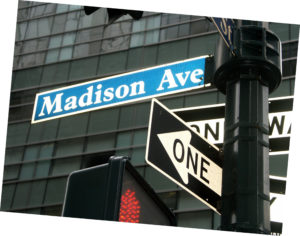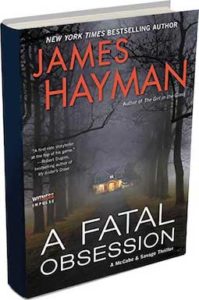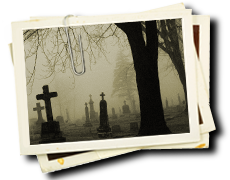Favorite Memories of Madison Avenue: My Night at the Berlin Wall
Wednesday, June 6th, 2018It was the creative shoot-out of the year in the advertising business. Four of the largest and most prestigious agencies in the business…Ogilvy & Mather, BBDO, NW Ayer and Young & Rubicam, the agency where I was working as a senior creative director, were all vying to win the U.S. Army’s recruiting account which at that time, the Fall of 1986, was billing over $125,000,000 a year.
Our CEO, a former All-American football player who was used to winning, called me into his office and told me he wanted me to lead the creative effort. He also made it clear to me in no uncertain terms that he wanted to win this one. In fact, he wanted it so badly he was willing to spend upwards of a quarter of a million dollars of Y&R money to create and shoot a full up sixty second commercial that would be so emotionally powerful it would leave the panel of generals who would be making the decision literally in tears.
I went back to my office and called the three art director/copywriter teams who would be working for me on the pitch together for a meeting and explained the assignment. They were all smart, experienced and creative and in just a few days the three teams got back to me with a batch of ideas. I went through them. Suggested a few changes here and there. And then selected the ideas I thought best. When the changes had been made I arranged a meeting to present them to the CEO and other agency big-wigs. There were a lot of good ideas but a decision was made.
The spot we were going to shoot showed a young US soldier on patrol at night at the symbolic dividing line between democracy and tyranny: the Berlin wall. The obvious solution was to send our creative and production teams to Berlin and shoot there.
Sadly, there was one problem with that particular “obvious” solution. The US Army’s rules for the pitch stated in no uncertain terms that no one from any of the competing agencies could have any direct contact with any active duty U.S. military personnel. There would be no way to avoid such contact at the Wall in Berlin. The second, less obvious solution, was to find a close replica of the wall closer to home. Our producer and production company dispatched location scouts all over the New York tri-state area. They found a number of walls that didn’t make the cut. And one that did.
It was an almost exact replica of the real thing surrounding a moving company warehouse just outside of Newark in Harrison, New Jersey. All it lacked was barbed wire strung along the top and the endless graffiti that the real wall had. We sent out team a team of set designers who strung the barbed wire and spray-painted replicas of the real graffiti. They also created an almost exact copy of Checkpoint Charlie, the best-known passage between the US sector and the Russian sector of the divided city.
When everything was ready our creative and production teams along with the young actor we’d cast in the role of an American MP headed out to the wall. It was a rainy Friday night when we set up and started shooting. The actor was shown patrolling a sector of the wall and finally arriving at the checkpoint which was manned by extras wearing East German military uniforms and toting (fake) automatic weapons.
The shoot all went perfectly. The only hitch was that our wall and our Checkpoint Charlie happened to be located directly across the street from the Harrison stop on the PATH (Port Authority Trans Hudson) railroad station. There weren’t many passengers getting off at midnight on a rainy Friday. But every time a train pulled in a few who’d obviously spent their Fridays drinking too much in Manhattan bars staggered onto the platform only to be confronted with our machine gun toting East German soldiers and a large sign telling them that they were now “leaving the American sector.” It was a thing of nightmares and from their shocked, unbelieving expressions I have no doubt that many of these poor souls decided it was well past time to give up the booze.
In any event we wrapped the set around three in the morning and headed for home. We selected our takes and edited the commercial over the next few days and within a week or so I was presenting it (along with the rest of the Y&R team’s voluminous pitch proposal) to the assembled brass at an army conference center south of Washington.
The post-script is that we got the account and I spent the next three years as Creative Director on the Army account creating many more pool-outs of the Army’s highly successful “Be All You Can Be” recruiting campaign.
And please don’t forget to look for my latest McCabe/Savage thriller, A Fatal Obsession, coming out on August 21st and available for preorder now!
Follow me on Twitter or Facebook for more details!



